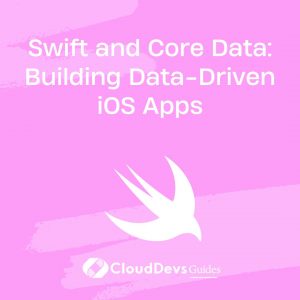The Ultimate Guide for Hiring Swift Developers
Swift, the programming language developed by Apple, has become increasingly important in today’s tech industry. With its clean syntax, safety features, and powerful capabilities, Swift has gained popularity among developers worldwide. The growing demand for Swift developers is a testament to its significance. Many businesses, especially those in the mobile app development industry, are now prioritizing Swift expertise.
Table of Contents
The language’s versatility enables developers to build robust and efficient applications for a variety of platforms, including iOS, macOS, watchOS, and tvOS. As the tech industry continues to evolve, the demand for skilled Swift developers is expected to rise, making it an excellent skill to acquire for those looking to thrive in the ever-expanding digital landscape.
1. What is The Swift Programming Language?
- Swift is a programming language developed by Apple for iOS, macOS, watchOS, and tvOS app development. It was introduced in 2014 as a replacement for Objective-C, which had been the primary language for Apple platform development. Swift is designed to be safe, fast, and expressive, with a focus on modern programming patterns.
- One of the key reasons why developers prefer Swift is its simplicity and readability. The language syntax is clean and concise, making it easier to write and understand code. Swift also has a strong type system, which helps catch errors at compile-time and prevents runtime crashes. This makes debugging and maintaining code much easier.
- Another advantage of Swift is its performance. The language is optimized for speed and efficiency, allowing developers to create high-performance apps. Swift also provides powerful features like optionals, which help handle nil values and reduce crashes caused by null pointer exceptions.
- The language has a robust standard library that provides a wide range of functionality, making it easier for developers to build complex applications. Swift supports interoperability with Objective-C, allowing developers to use existing Objective-C code in their Swift projects.
- Apple has been actively promoting Swift and providing regular updates, ensuring that developers have access to the latest features and improvements. Swift also has a growing and vibrant community of developers, which means there are plenty of resources, tutorials, and libraries available for learning and building applications.
- Swift is the future of Apple platform development. Apple has made it clear that Swift is their preferred language, and it is being adopted by more and more developers and organizations.
2. What Value Does Swift Add to The Organization?
- Swift provides a wide range of features and tools that greatly enhance the development process for organizations, as detailed below.
- The language’s simplicity and readability make it easier for developers to write clean and maintainable code, which leads to increased productivity and reduced debugging time.
- Swift’s strong typing system allows for better error handling and reduces the chances of runtime errors, resulting in more robust and reliable applications.
- The language’s support for optional enables developers to write safer code by handling null values explicitly, minimizing unexpected crashes.
- Swift’s automatic memory management system ensures efficient memory allocation and deallocation, reducing the risk of memory leaks and improving overall performance.
- The language’s interoperability with Objective-C allows organizations to leverage their existing codebase and easily integrate Swift into their projects.
- Swift’s performance optimizations, such as its use of value types and lightweight closures, enable organizations to build faster and more efficient applications.
- Swift’s support for concurrent programming through features like Grand Central Dispatch enables organizations to develop applications that can take full advantage of multicore processors.
- Swift’s open-source nature fosters a vibrant community of developers, contributing to a rich ecosystem of libraries and frameworks that organizations can leverage to accelerate their development process. Further, the language’s strong community support and extensive documentation make it easier for organizations to find resources and get help when needed.
3. Things to Consider Before Hiring Swift Developers
Prior to the process of hiring Swift developers into the company, there are several aspects that need to be considered.
- Skillset: Firms need to consider the specific skillset required for Swift development. This includes expertise in Swift programming language, knowledge of iOS development frameworks, familiarity with Xcode IDE, and experience with Apple’s development tools and guidelines.
- Experience: Firms should assess the level of experience of Swift developers they are considering to hire. This includes evaluating the number of years of experience in Swift development, the complexity of projects they have worked on, and their ability to handle various aspects of the development process.
- Portfolio: Firms should review the portfolio of Swift developers to gauge the quality of their previous work. This includes examining the apps they have developed, their functionality, design, and user experience. It is important to assess whether their previous projects align with the firm’s requirements and standards.
- Communication and Collaboration: Firms should consider the ability of Swift developers to effectively communicate and collaborate with team members. This includes assessing their communication skills, their ability to work in a team environment, and their willingness to take feedback and incorporate it into their work.
- Up-to-date Knowledge: Firms need to ensure that Swift developers stay up-to-date with the latest trends and advancements in the Swift ecosystem. This includes assessing their knowledge of new features and updates in Swift, their participation in developer communities and forums, and their commitment to continuous learning and improvement.
4. What are The Roles and Responsibilities of Swift Developers in an Organization?
A Swift developer is responsible for creating and maintaining software applications using the Swift programming language. They play a crucial role in developing iOS, macOS, watchOS, and tvOS applications. Here are the key roles and responsibilities of a Swift developer:
- Application Development: Swift developers are proficient in building robust and efficient applications using the Swift programming language. They work closely with the design team and stakeholders to understand requirements and translate them into functional applications.
- Coding and Debugging: Swift developers write clean and maintainable code following industry best practices. They are responsible for debugging and fixing issues, ensuring the smooth functioning of the applications they develop.
- UI/UX Implementation: Swift developers collaborate with designers to implement user interfaces and create seamless user experiences. They use Swift’s UIKit framework to design and develop interactive and visually appealing interfaces.
- Integration of APIs and Services: Swift developers integrate third-party APIs and services into their applications. They have a deep understanding of RESTful APIs and are adept at handling data exchange between the application and the backend services.
- Performance Optimization: Swift developers focus on optimizing the performance of their applications. They identify bottlenecks and implement efficient algorithms to enhance the speed and responsiveness of the applications.
- Testing and Quality Assurance: Swift developers are responsible for writing unit tests and conducting thorough testing to ensure the quality and reliability of their applications. They use testing frameworks like XCTest to automate testing and ensure proper code coverage.
- Version Control and Collaboration: Swift developers use version control systems like Git to manage their codebase and collaborate with other developers. They actively participate in code reviews and provide constructive feedback to their peers.
- Continuous Learning: Swift developers keep themselves updated with the latest trends and advancements in Swift development. They continuously learn new technologies, frameworks, and tools to improve their skills and stay ahead in the rapidly evolving field.
A Swift developer, therefore, plays a vital role in developing high-quality applications for various Apple platforms. With their expertise in Swift programming and application development, they contribute to creating seamless, user-friendly, and efficient software solutions.
5. Common Tools and Libraries for Swift Developers
- Xcode: The official integrated development environment (IDE) for Swift development, providing a wide range of tools and features such as code editing, debugging, and testing.
- Swift Package Manager: A command-line tool for managing dependencies and building Swift packages. It allows developers to easily add, remove, and update package dependencies in their projects.
- CocoaPods: A dependency manager for Swift and Objective-C projects. It simplifies the process of integrating third-party libraries and frameworks into a project by automatically handling the downloading, linking, and versioning of dependencies.
- Carthage: Another dependency manager for Swift and Objective-C projects. It focuses on simplicity and speed, allowing developers to easily add and update dependencies by specifying them in a simple file called “Cartfile”.
- Alamofire: A widely-used networking library for Swift, providing a convenient and high-level interface for making HTTP requests and handling responses. It supports various networking tasks like sending GET and POST requests, downloading files, and handling authentication.
- Realm: A mobile database framework for Swift, providing an alternative to SQLite and Core Data. It offers a simple and intuitive API for storing and retrieving data, and supports features like data encryption, object relationships, and automatic schema migrations.
- RxSwift: A popular reactive programming framework for Swift, based on the ReactiveX paradigm. It allows developers to write asynchronous and event-driven code in a declarative and composable manner, making it easier to handle complex UI interactions and asynchronous tasks.
6. How to Assess the Suitability of Potential Swift Developer Candidates?
6.1 Technical Competences
- Evaluate the candidate’s professional experience, specifically looking for previous work as a Swift developer and the duration of their experience.
- Assess the candidate’s technical skills in Swift, including their proficiency in the language, knowledge of Swift frameworks, and experience with Swift development tools.
- Assess the candidate’s knowledge of iOS development by asking questions about Apple’s development tools, such as Xcode, and their understanding of iOS design patterns and user interface guidelines.
- Evaluate the candidate’s familiarity with the Swift community and their involvement in open-source projects or participation in Swift-related events and conferences.
6.2 Employability Skills
- Evaluate the candidate’s problem-solving skills by asking them to provide examples of challenging Swift projects they have worked on and how they approached and resolved any issues.
- Assess the candidate’s ability to collaborate and work in a team by asking about their experience working in Agile or Scrum environments and their communication skills with other team members.
- Assess the candidate’s passion for Swift development by asking about their personal projects or contributions to the Swift community outside of their professional work.
- Evaluate the candidate’s attention to detail by asking about their experience with writing clean, maintainable code and their awareness of best practices in Swift development.
- Assess the candidate’s problem-solving ability by presenting them with hypothetical scenarios and asking how they would approach and solve them using Swift.
- Evaluate the candidate’s ability to adapt and learn new technologies by asking about their experience with learning new Swift features, libraries, or frameworks and how they stay up to date with the latest advancements in Swift development.
6.3 Cultural Fit Within The Company
- Evaluate the candidate’s cultural fit within the company by assessing their values, work ethic, and their alignment with the company’s mission and vision.
- Assess the candidate’s ability to handle feedback and criticism constructively by asking about their experience receiving feedback on their code and how they have used feedback to improve their skills as a Swift developer.
- Evaluate the candidate’s problem-solving ability under pressure by presenting them with a time-sensitive Swift programming challenge and assessing how they handle the pressure and deliver a solution.
- Assess the candidate’s ability to communicate technical concepts to non-technical stakeholders by asking them to explain a complex Swift concept or feature in simple terms.
7. Where to Find Expert Swift Developers?
Finding expert Swift developers can be a challenging task, considering the demand for these professionals in the market. However, there are several avenues you can explore to connect with skilled Swift developers.
- Online Job Portals:
One of the most common ways to find Swift developers is through online job portals. Platforms like LinkedIn, Indeed, and Glassdoor provide a vast pool of candidates actively seeking employment. Utilizing these portals allows you to post job listings and browse through profiles to find developers with relevant experience in Swift.
- Developer Communities and Forums:
Engaging with developer communities and forums is another effective avenue to find Swift developers. Websites like GitHub, Stack Overflow, and Reddit have dedicated communities where developers discuss programming languages, including Swift. By actively participating in these communities, you can connect with experienced Swift developers and even find potential candidates for your project.
- Swift-Specific Websites:
There are several websites specifically designed for Swift developers, providing a platform to connect with experts in the field. Websites like Hacking with Swift, Ray Wenderlich, and Swift.org offer resources, tutorials, and forums where you can find skilled Swift developers. These platforms often have job boards or dedicated sections to connect developers with potential employers.
- Networking:
Networking plays a crucial role in finding expert Swift developers. Attend Swift-related conferences, meetups, or developer events to connect with professionals who specialize in Swift development. Networking events provide an opportunity to establish personal connections, which can be beneficial when looking for skilled Swift developers.
- Freelance Platforms:
Freelance platforms, such as Upwork, Freelancer, and Toptal, can be useful for finding expert Swift developers for short-term projects or remote work. These platforms allow you to post project requirements and connect with developers who have relevant expertise in Swift.
- Referrals and Recommendations:
Utilizing referrals and recommendations can be an effective way to find expert Swift developers. Reach out to colleagues, friends, or industry contacts who have worked with Swift developers in the past. They may be able to recommend skilled professionals or connect you with potential candidates.
- Swift Developer Blogs and Podcasts:
Many Swift developers maintain their own blogs or contribute to podcasts, where they share their expertise and insights. By following these blogs or listening to podcasts, you can gain knowledge about the Swift community and potentially connect with expert developers.
Finding expert Swift developers can be achieved through various avenues such as online job portals, developer communities and forums, Swift-specific websites, networking, freelance platforms, referrals, and Swift developer blogs and podcasts. Exploring these avenues will help you connect with skilled Swift developers who can contribute to your projects effectively.
8. What is The Cost of Hiring Expert Swift Developers?
Hourly average rates to hire Swift developers can vary significantly based on several factors such as location, experience, and demand. Firstly, location plays a crucial role in determining the rates. In metropolitan areas with a high concentration of tech companies, the hourly rates tend to be higher compared to smaller cities or rural areas.
| Region | Average hourly rate for Swift developers |
|---|---|
| North America | $150 |
| South America | $95 |
| Eastern Europe | $100 |
| Western Europe | $110 |
| Middle East | $100 |
| Africa | $130 |
| Asia Pacific | $90 |
| Australia | $100 |
Additionally, experience also influences the rates. Swift developers with several years of experience and a proven track record may command higher hourly rates due to their expertise and the value they bring to projects. On the other hand, junior developers or those with less experience may charge lower rates as they are still building their skill set. Lastly, demand plays a significant role in rate fluctuations. When the demand for Swift developers is high, such as during the launch of a new product or in industries where Swift is in high demand, the hourly rates tend to be higher. Conversely, during periods of low demand, rates may decrease as developers compete for limited job opportunities. Overall, the hourly average rates to hire Swift developers vary based on location, experience, and demand, making it essential for businesses to consider these factors when budgeting for such resources.
Reach out to CloudDevs today for all your needs of hiring pre-vetted remote Swift developers, and source the ideal candidate!
Table of Contents








